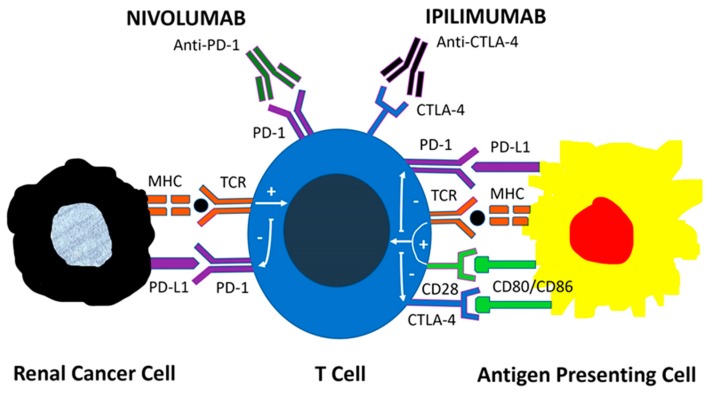Figure 1.
Mechanisms of action of immune checkpoint inhibitors. PD-1 acts as a negative regulator of T-cell activity by binding to PD-L1 on tumor cells and antigen-presenting cells, leading to downstream signaling that inhibits the antitumor T-cell response. CTLA-4 also negatively regulates T-cell activation by binding to B7 ligands CD80 and CD86 on antigen-presenting cells, thus preventing the co-stimulatory interaction between CD28 and B7 ligands. The monoclonal antibodies Nivolumab and Ipilimumab target the immune checkpoint proteins PD-1 and CTLA-4, respectively. Nivolumab blocks the inhibitory signal of the PD1: PD-L1 interaction while Ipilimumab blocks the inhibitory signal of the CTLA-4: B7 interaction.

